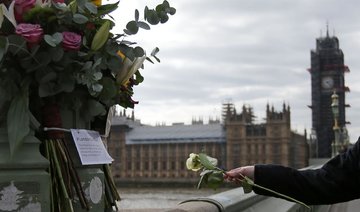SAMOA: Commonwealth countries on Saturday adopted their first ocean declaration during their summit held for the first time in the Pacific island nation of Samoa as calls from some of Britain’s former colonies for reparatory justice for the trans-Atlantic slave trade grew louder.
The Apia Ocean Declaration was announced during the closing session of the 27th Commonwealth Heads of Government Meeting, or CHOGM, and calls on all 56 Commonwealth nations to protect the ocean in the face of severe climate, pollution and over-exploitation.
More than half the Commonwealth members are small countries like Samoa, many face significant, some even existential, threats from rising seas.
While the environmental threat was foreshadowed as a predominant theme going into the summit, the transatlantic slave trade from Britain’s colonial history dominated the discourse through the opening days.
“A line in the sand” declaration, The Apia Commonwealth Ocean Declaration for One Resilient Common focuses on recognizing maritime boundaries amid sea-level rise, protecting 30 percent of oceans and restoring degraded marine ecosystems by 2030, and urgently finalizing the Global Plastics Treaty.
It also calls for ratifying the high-seas biodiversity treaty, developing coastal climate adaptation plans, and strengthening support for sustainable blue economies.
Samoa Prime Minister Fiame Naomi Mata’afa said in a statement released by her office that it was fitting for “our first ocean declaration” to be adopted “in the Blue Pacific continent given climate change has been recognized as the single greatest threat to the security and well-being of our people.”
The Commonwealth represents a third of the world’s population, and 49 of its 56 countries have a coastline.




























